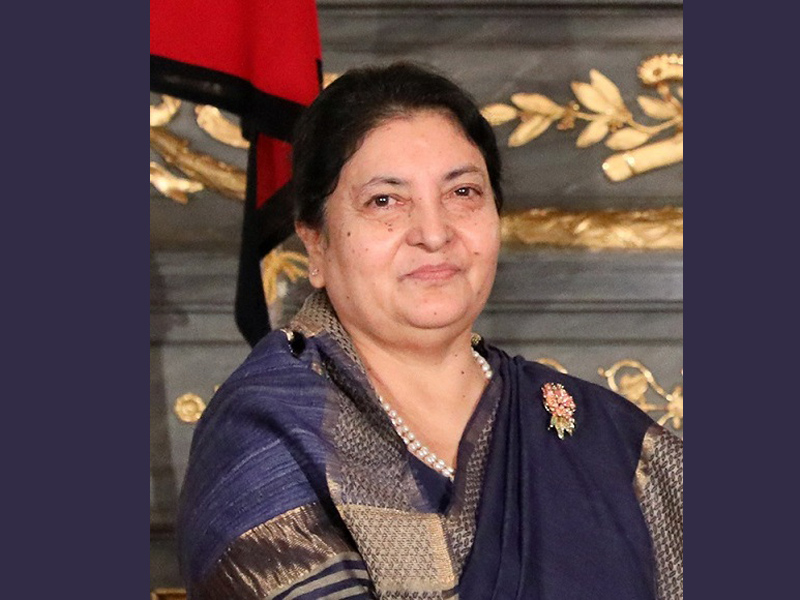 Nepal
Nepal Nepal president appoints 20 to constitutional bodies under controversial ordinance
Kathmandu: Nepal’s President Bidya Devi Bhandari on Thursday appointed 20 people to eleven constitutional commissions under a controversial ordinance that has remained challenged in the country’s Supreme Court for the last six months.
On 4th May, the Oli government amended the Constitutional Council Act (Functions, Duties, and Procedures) 2010 by reissuing an ordinance, and recommended 20 appointees on 9 May, just a day before the government lost the trust vote in parliament on 10 May.
Oli moved ahead with reissuing the ordinance despite the strong objections from the opposition, which, in turn, challenged the amendment in the court. Also, under the amended law, the appointments are needed to go through a parliamentary hearing which, in both cases, didn't happen.
Ignoring all anomalies in the process, President Bhandari confirmed appointments on Thursday, just two days after the apex court struck down the appointments of 20 ministers of the Oli’s cabinet.
“The amendment to the Constitutional Council Act is against the spirit of the constitution. I had sought the Supreme Court’s intervention to invalidate it and scrap the appointments,” Advocate Om Prakash Aryal, one of the petitioners challenging the ordinance, was quoted as saying by The Kathmandu Post.
Moreover, this is not the first time when the appointments were made in crucial constitutional commissions under the controversial ordinance. On 20 December, the day before the Oli government recommended the dissolution of the lower house for the first time, the government recommended 38 appointees; Of which, 32 were later confirmed by the president in February.
Among the appointees were members of the country’s Election Commission, National Human Rights Commissions.
Support Our Journalism
We cannot do without you.. your contribution supports unbiased journalism
IBNS is not driven by any ism- not wokeism, not racism, not skewed secularism, not hyper right-wing or left liberal ideals, nor by any hardline religious beliefs or hyper nationalism. We want to serve you good old objective news, as they are. We do not judge or preach. We let people decide for themselves. We only try to present factual and well-sourced news.







